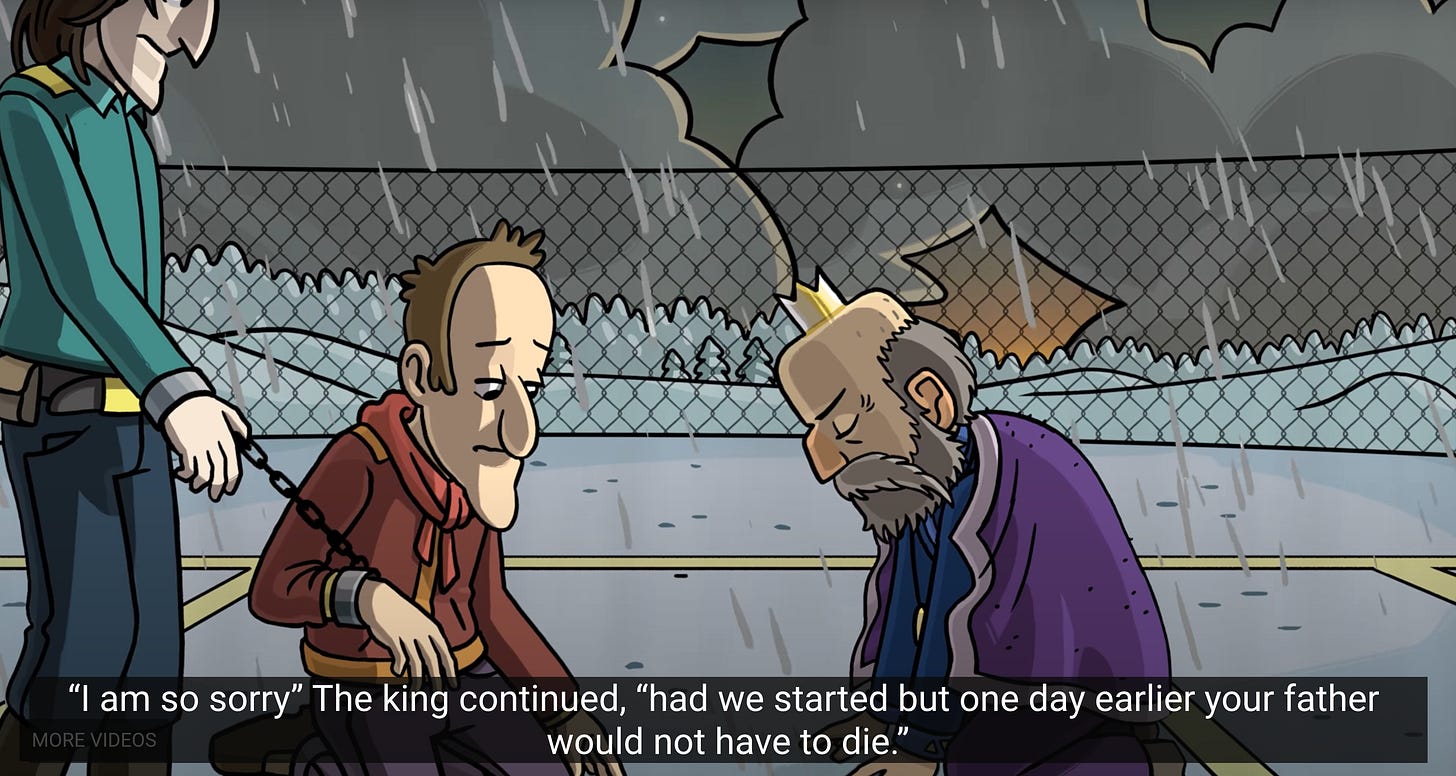We Must Abolish Death
Scientific advancements are putting ending aging in reach. We must accelerate these to save lives.
Friends and comrades, we must abolish death. While I say this with nothing but sincere earnestness, like when many radicals talk about “abolishment,” I know absolutes are impossible — and probably not good — and accomplishing this is a long march. But we must passionately pursue an end to death as fervently as possible.
Today, an article said scientists have “bad news” for people wanting to defy aging — except the article itself ends with “scientific advances might yet achieve ‘what evolution could not.’” The reality is science is already achieving so much that evolution could not, and aging is no exception. Two years ago, Harvard genetics professor David Sinclair published Lifespan: Why We Age – and Why We Don't Have To, advocating that solutions to many of these problems are in sight.
While this might seem like such a far-off dream that there is no need for a sense of urgency, as explored in the Nick Bostrom story, “The Fable of the Dragon-Tyrant,” efforts delayed now lead to preventable death in the future. The longer we take to solve these problems, the more people who will be denied all the time they want on earth.
Death does not give life meaning. This is a cope people tell themselves to deal with their own mortality. Death makes people more selfish, more desperate, less willing to dedicate time to others. More time means more time to grow, to learn, to understand — to bridge the gaps with each other rather than being left to transmit what we can through culture to the next generation.
Attaining absolutely zero death would be near impossible and possibly counter-productive — even The Good Place’s happy ending had an option for people who’ve lived a very long time to peacefully end things — but more and more will become preventible and reversible in the next few decades to the point of having the technology to prevent most death and the frailty that comes with age.
Aging is a puzzle of interlocking problems, many of which are not even wear and tear but the body’s means of mitigating the harm of it. For instance, telomeres — the caps at the end of each strand of DNA — shorten each time a cell divides. No telomere, no more cell division. The good news is we have the technology to restore telomeres!
The bad news is, evolutionarily, this has a purpose: as DNA damage accumulates in cells, the risk of cancer from continued cell division outweighs the drawbacks of having less cell division. But by developing treatments to reverse that DNA damage as well as prevent cancer, we could render this problem meaningless.
Given the substantial majority of death is due to disease induced by the aging process, by solving aging, we could solve so much of the problem of death. This would not solve the numerous non-aging-related causes of death, but, not only should those be tackled too, but it behooves us to do everything we can to reduce the risk of death and to give people better quality of life later in life.
Technology is largely about refining and iterating on existing concepts, but every once in a while there are key breakthroughs that change people’s ideas about what is even possible. So much of what we take for granted today, such as being able to instantly message someone halfway around the world, would seem like impossible magic mere decades ago.
Understanding death and aging not as some set-in-stone inevitably, as articles that ignore the role of scientific advancement reinforce, just means less attention and resources are dedicated to solving a problem that would profoundly improve the lives of billions of people.
Often, people talk about “post-scarcity” economics — envisioning a future where resources are available in such abundance and distributed fairly enough that everyone has plenty. But the most precious resource of all, time, must become post-scarcity as well. Starvation and aging are both processes that rob people of the preciousness of life against their will. Just as we should ensure everyone has enough food, we should ensure they have enough time.
We live in a world of magic. Of sci-“fi” turned real. But every time new technological wizardry is concocted, we look at the frontiers yet to be tackled as if they are insurmountable. Let us seeing abolishing death for what it is — a quest that will be long, arduous, and many of us will not live to see. However, once you recognize conquering death as not an impossibility, but an inevitability, the urgency to grant as many people as possible the gift of abundant time becomes apparent.



